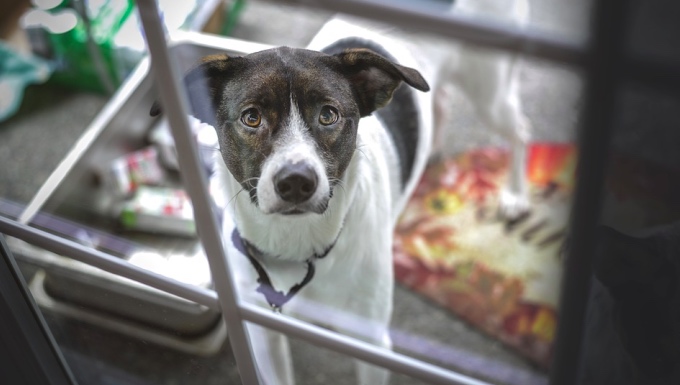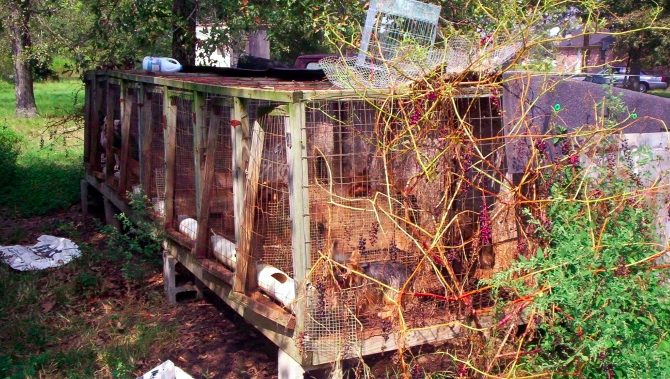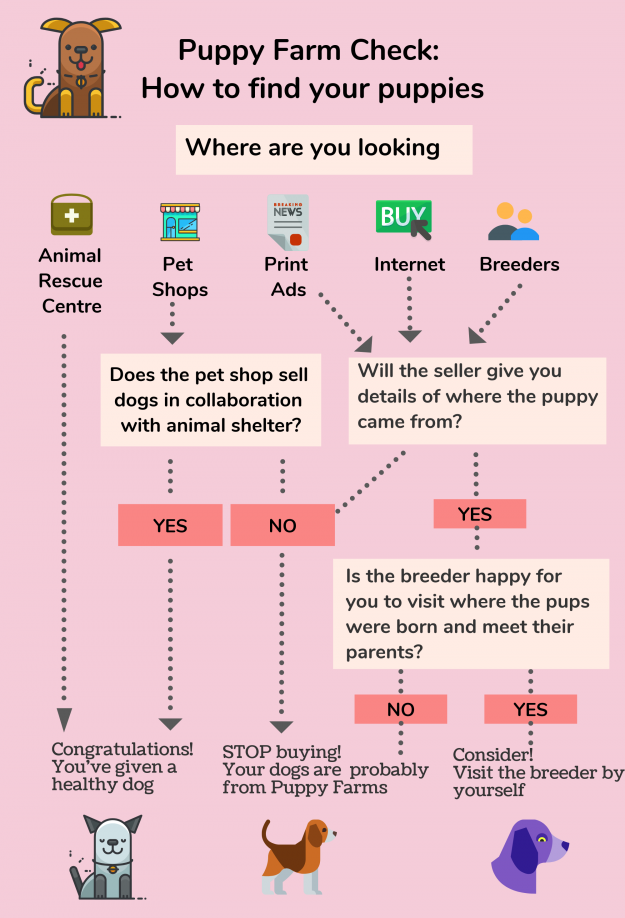The Welsh Government launched a consultation last month on stopping commercial sales of puppies and kittens, but what does this mean for abused animals in illegal puppy farms?

The moment I opened the door of one of the rooms in Eileen’s house, four puppies ran towards me. Happy and together, they rubbed themselves against my legs. They are lovely, energetic, healthy. I can’t imagine, they ever went through a period of being abused in puppy farms.
“It takes a long time to get them to trust people again and we need to teach them that people are not going to hurt them anymore,” says Eileen Jones, the rescue coordinator of Friends of Animals Wales, which is an animal charity based in South Wales for rehoming puppies, cats, and rabbits.
Every year, Eileen receives sick puppies from puppy farmers who are no longer willing to breed. Puppies from these farms are often scared of people since puppy farmers breed animals only for making money and they don’t care much about their welfare.
“Lucy’s Law will stop part of it because puppy farms will have no way to sell their puppies,” said Eileen.
The name of Lucy’s law originates from a little cavalier dog named Lucy kept in a cage on a puppy farm. Lucy suffered from many health problems physically and mentally but was re-homed by Lisa Garner. Lisa started an awareness campaign on social media five years ago to make people aware of puppy farming and how bad it was for the dogs.
Last year the petition behind the story has helped to change the law in England, banning commercial third-party sales of puppies and kittens. Now, the Welsh Government has launched a consultation which runs from 19th February until 17th May on Lucy’s Law, stopping commercial sales of puppies and kittens.
https://www.instagram.com/p/vy2AFxFgtT/?utm_source=ig_embed
Puppies are bred, sold, and traded every day in puppy farms. The annual market for the sale of puppies in the UK is estimated between 700,000 and 1.9 million. This is worth between £100 million and £300 million, according to a report from parliament UK.
Pets commercial trading is normally underground. If searching ‘pet shop’ in Cardiff on the map, only a few results come up and the nearest one is in Penarth.
Actually, the pet shop is not the main buyer from puppy farms. Pets can be sold to some other third-parties such as dealers, commercial kennels and online pets’ shops. These transactions are in a diverse array of premises including private homes and puppy superstores.
A white bichon from a farm, Carol, has been in Eilleen’s rescue centre for two months. When Eileen picked her up, she had a big tumour that hangs down and touches the floor. “For ones like Carol, we have mended her body, but her mind was very badly damaged by what happened. Carol got sick, but puppy farmers didn’t want to spend any money on her,” Eileen said.

Puppy farmers will not pay for treatment costs of puppies, but neither are they willing to spend much money on providing basic living standards for pets.
Eileen has ever visited several puppy farms, and she described, “Puppies might live in old stables or another place where farmers used to keep livestock. They usually live in a dark area with very little natural daylight. They mostly don’t have any dog beds or warm blankets to sleep on, because they don’t want to wash things. They might use sawdust or straw.”
Meanwhile, farmers try to spend less time looking after puppies. “The farmer goes in and puts food in once a day. Sometimes they put big containers of food in, so they don’t have to go and feed them every day.”
Under such poor living conditions, puppy’s welfare has become an issue for a long time. “The only way used to stamp that out is having a shorter supply chain,” James, an animal protector as well as the owner of a pets’ products shop in Wales, said.

If the law of banning commercial selling is implemented, people could only buy pets in two ways. The first option is people go to the rescue centre and adopt a puppy.
Adopt but not shop could be beneficial to pets’ welfare. Gwen, who is a member of Friends of Animals Wales, said, “If anybody wants to adopt one of our dogs, people need to pay for us, but that is vets’ fees and they have all the injections to make sure dogs from us are perfect.”
Another way is buying directly from breeders. “If I have the mum who breeds a litter, and somebody would come to me and buy their puppy, then if anything goes wrong, people will get somewhere to come back to,” Eileen said.
Shortening the supply chain by banning commercial selling maybe just a small step. Setting strict, modern requirements for licensing breeders also matters. 88% of puppies born in the UK were born to unlicensed breeders. However, Eileen believes licensed breeders don’t meet standards either. “We get dogs in from licensed puppy farmers which is still not good.”
The legislation should regulate that only the dog breeders who have complied with the requirements are permitted to sell dogs, according to the report from Parliament UK.
“Responsible breeders take good care of the parent dogs and get all the vet treatment done. When puppies are born, they’ll have been vaccinated. A really good breeder will always say these to someone who buys a puppy,” Eileen explained.

Eileen’s house continues rescuing puppies or kittens. In five months, Eileen has had seven female dogs who are pregnant already, “Some of the farmers are now getting rid of the dogs because they know that the law is coming. They’ve been passing pregnant puppies on quicker.”
“I was so sad because dogs, they give us their hearts. They trust us, but we abuse that. Hopefully, all the puppies will be born where they cared for. And mums get really good care, not just puppy machines.” Eileen said.
